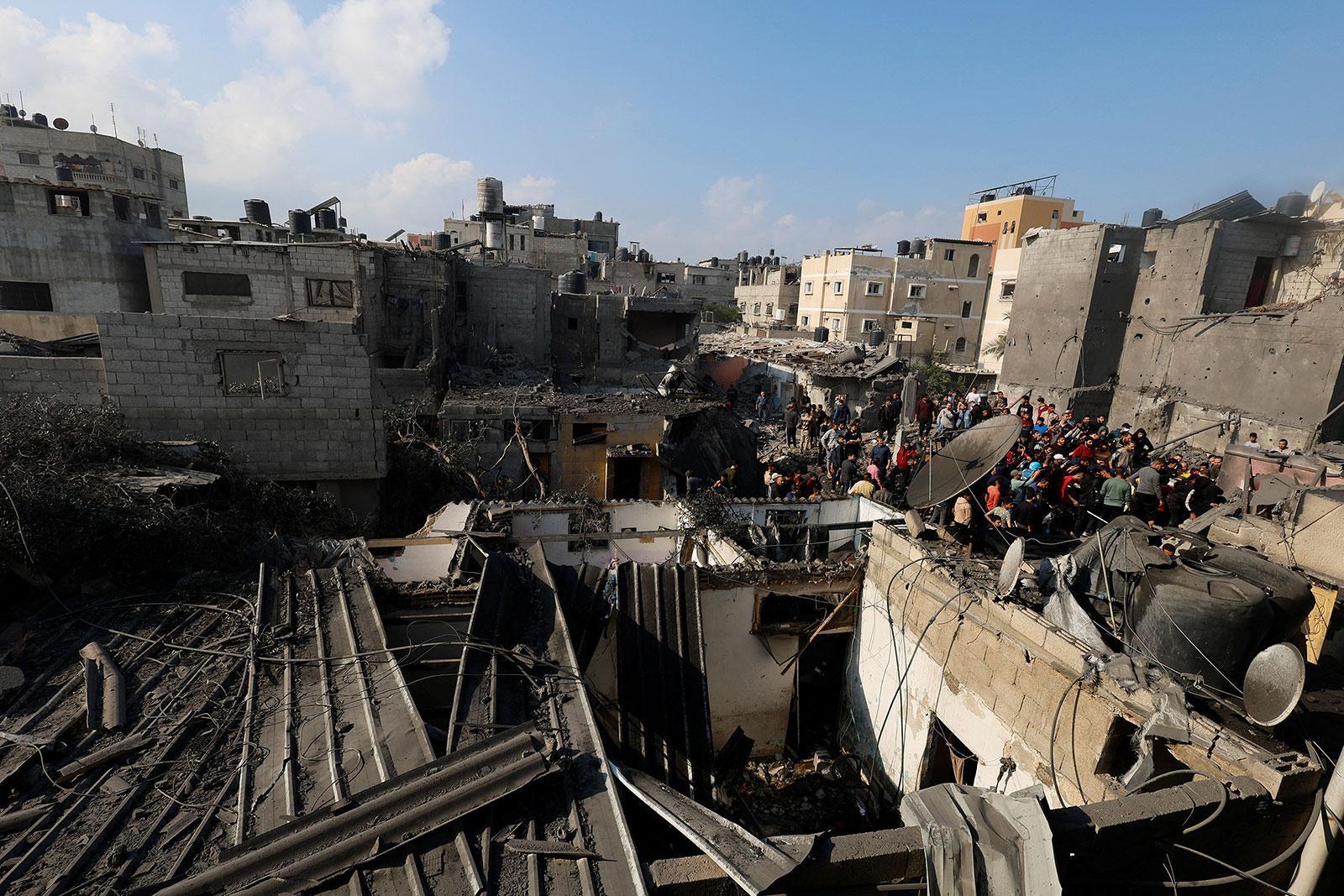Africa-Press – Mauritius. Qatar, which has played a key role in negotiations between Israel and Hamas, expressed its deep regret at the renewed “Israeli aggression” on Gaza following the expiration of the humanitarian truce.
“The continued bombing of the Gaza Strip in the first hours after the end of the truce complicates mediation efforts and exacerbates the humanitarian catastrophe in the Strip,” the Qatari foreign ministry said in a statement Friday.
Qatar vowed to take all necessary measures to restore calm. The ministry said negotiations between the Palestinian and Israeli sides are continuing with the aim of returning to a state of truce. Qatar condemns all forms of targeting civilians, collective punishment and attempts to forcibly displace Gaza residents, the ministry said.
Qatar also demands “an immediate ceasefire and to ensure the continuous and unhindered flow of relief convoys and humanitarian aid, in a way that meets the actual needs of the residents of the Strip,” the statement adds.
The “nightmare” for civilians caught in the Israel-Hamas war has returned as fighting has picked up again, Robert Mardini, director-general of the International Committee of the Red Cross, told CNN Friday.
“The nightmare is back for civilians in this conflict. Gazans, of course, but also Israelis on the other side of the front line,” Mardini told CNN’s Becky Anderson.
“And after seven days of respite that made a huge difference in terms of humanitarian support to the people who need the support most, this is now being challenged by the resumption of fighting.
” Mardini emphasized the importance of holding out hope for another truce.
“We need to keep the hope alive. Let’s not forget that there has been seven full days of truce,” he said. “That was a glimmer of hope.
That was humanity prevailing in the midst of chaos and conflict. It is also international humanitarian law in action when these operations can take place following a negotiation between the parties.
” The director-general also said both sides in the conflict “must work harder to protect civilians, because it is their obligation, period. ” On hostages: The ICRC has played a crucial role in the delicate process of handing over hostages held by Hamas to Israeli authorities.
Mardini described the process as “a very simple operation because it is facilitating the transfer, but at the same time it is very complex, because at every step of the way it can derail, because every single detail is part and parcel of negotiations between the parties.
“And our teams have to implement those negotiations in a very disciplined way,” he added. He also commended the work of his team on the ground in Gaza. “A lot of credit should go to them today,” he said.
The ICRC staff and volunteers are “caught between a rock and a hard place,” as they face the same challenges as civilians and are in the line of fire, he said.
As fighting resumes in the Israel-Hamas war, both sides continue to negotiate through mediators over the potential release of hostages from Gaza, which would prompt another pause in hostilities, three sources familiar with the discussions said.
The negotiating parties — Israel and Hamas, in consultation with Qatar, the US and Egypt — are still actively discussing the release of the rest of the women hostages, one of the sources said.
There is an understanding that a Hamas list of captives deemed acceptable by Israel would bring back the truce, according to those sources. Israel believes there are 20 women and two children under the age of 18 still being held hostage, the prime minister’s office said Friday, out of a total of 137 hostages.
If and when what is presumed to be the last group of remaining civilian women were to be successfully released, the parameters of the negotiations would quickly turn to another categories of hostages: civilian men, as well as military reservists — both male and female, two sources said.
Some background: Over the course of the negotiations that stretched into early Friday and past the truce expiration deadline, Hamas failed to produce a list of hostages that Israeli officials could accept, sources said.
In particular, one source said, there has been a fraught back-and-forth over Hamas’ claims that some of the women they are holding captive are soldiers – which Israel rejects.
Hamas has previously argued that women under 45 should be considered reservists and not civilians, according to a person familiar with the talks. Most of the women still being held hostage are under the age of 45, according to the Hostages and Missing Families Forum.
Hamas has claimed they do not have more women and children in their custody to release, suggesting those remaining may be in the hands of other groups.
Under the previous agreement, Hamas had to release 10 women and children hostages for each day of the truce, with three Palestinians released from Israeli prisons for each hostage.
For More News And Analysis About Mauritius Follow Africa-Press







